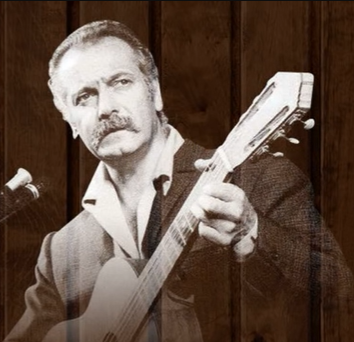Les croquants
The parvenus
Georges Brassens (1955)
|
|
|
(a) Comme pour la plupart des chansons de Brassens sur ce site, ces notes sont tirées du blog de David Yendley (http://dbarf.blogspot.fr/2011/01/). Elles ont trait ici à des mots difficiles qui peuvent intriguer un lecteur anglophone. Elles ne seront pas traduites, sauf l'intéressante présentation générale du chant. La traduction chantable anglaise est basée sur la traduction en prose de M. Yendley. (b) "Voici un chant clair et harmonieux où Brassens traite un de ses thèmes favoris. Il nous dit que des parents livrent en pâture leurs filles à des prétendants de la haute société, obnubilés qu'ils sont par leurs perspectives en matière de fortune et de statut social. Il en résulte des mariages d'argent conventionnels scellés jusqu'à ce que mort s'ensuive. A l'opposé, il y a cette jeune fille qui aime un homme pour ce qu'il est et non pour ce qu'il a. Sa liberté d'esprit la conduit à de nouvelles expérience, toute sa vie durant, car elle donne son amour quand, et seulement quand cela lui plait. (1) Les croquants – The French dictionary, Le Petit Robert, tells us that the word « croquants » was given to peasants who rose in revolt in the reigns of Henri IV and Louis XIII. Robert goes on to tell us that afterwards the word was used simply to mean a peasant, although it is is often used as a pejorative to mean “thief” or “Skinflint”. Brassens’ croquants have too much money for these descriptions to apply. In this poem, when he uses this pejorative, he is thinking of ignorant men enjoying the power of their wealth. (2) A prix d'argent - acheter qch à prix d’or means to pay a (small) fortune for something.(Collins-Robert) (3) La main dessus - "mettre la main sur" means to take possession of to seize hold of.(Robert) (4) La main "dessous" – In the second part of the antithesis is Brassens being rude, suggesting that these objectionable men of money would also put their hands up the girls’ skirts. (5) cousus d'or – cousu is the past participle of coudre to sew. “être (tout) cousu d’or means to be rolling in money. (6) se fassent une raison = se faire une raison de qch.means to accept sth./ to put up with sth. (Collins-Robert) |
(a) Like for most of the Brassens songs at this site, these notes are borrowed from David Yendley's blog (http://dbarf.blogspot.fr/2012/05/alphabetical-list-of-my-brassens-songs.html). This singable translation is based on his prose translation. His notes refer to rare words which should not puzzle French-speaking readers. They will not be translated here, unlike the interesting presentation of the song. (b) "This is a neat and musical song on Brassens’ familiar themes. He tells how respectable parents hand over their daughters in marriage to men of superior status because of their narrow obsession with their future wealth and social status. The result is marriages that are routine, loveless and set until death. In contrast is the girl who loves a man for what he is and not for what has. She is a free spirit, whose life is full of new experiences as she gives her love when and only when she pleases. (7) ostrogoth = In history the Ostrogoths were the Goths who came from the East. The word has cometo be used to describe a person who is ill-educated,, ignorant, boorish, eccentric. None of these words fit the man that brassens intends to describe. Instead, in this poem, the term represents the person that the anarchistic Brassens admired- a spontaneous person standing apart from the false values of conventional society and indifferent to wealth and personal possessions. (8) tombe des nues – Idioms using these words refer to a state of surprise and incredulity. “Je suis tombé des nues” means you could have knocked me down with a feather (9) La fleurette – Little flower. Brassens uses it as a symbol for virginity (10) à l'encan, =vendre à l’encan-to sell at auction. (Larousse). (Of course the most common translation for “the auction” is « La vente aux enchères ») (11) la fleur – The flowerlet of the young girl, mentioned earlier, has now matured into a full flower. (12) faire peau neuve = to find a new image - make a new start" . |
 Brassens chante "Les croquants" |
